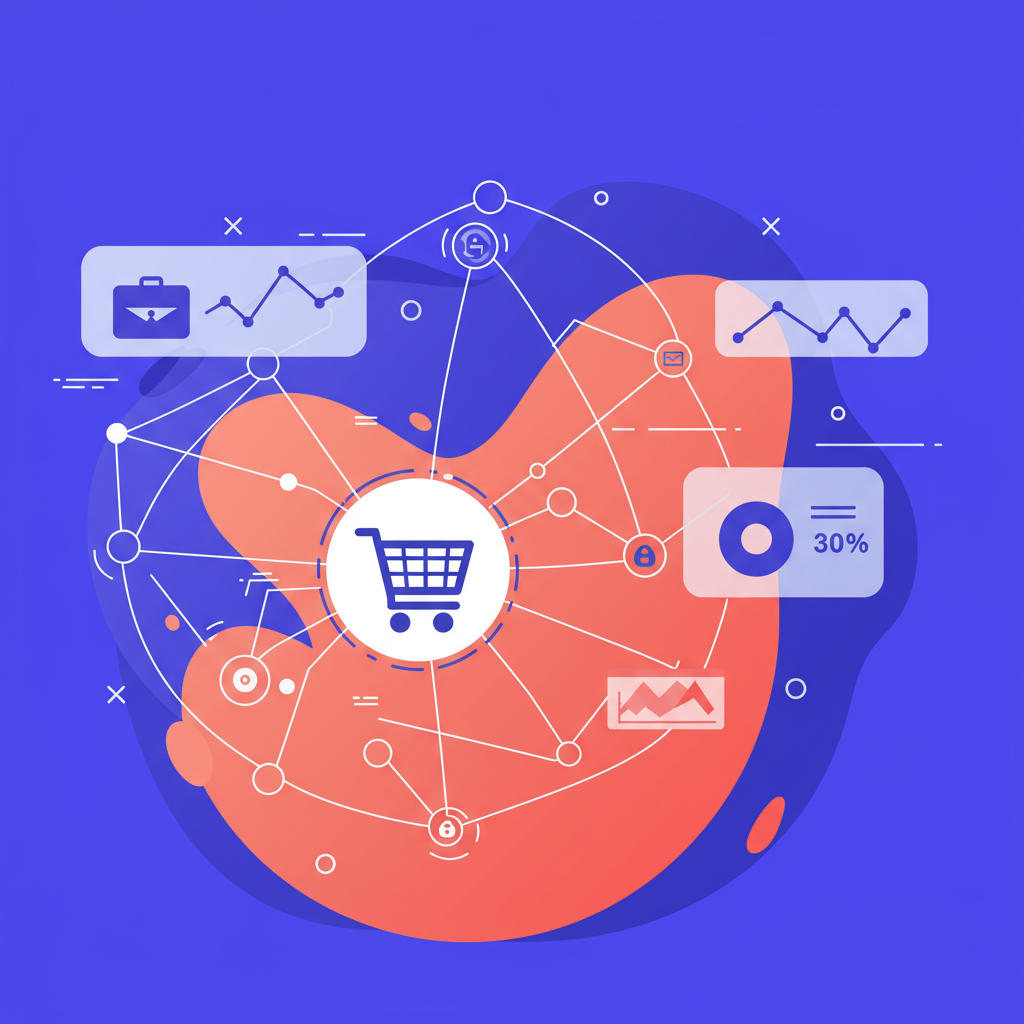Discover how artificial intelligence is transforming e-commerce marketing, offering unprecedented personalization and efficiency for your Shopify store.
As a merchant navigating the dynamic world of e-commerce, I’ve always been on the lookout for strategies that give me an edge. The digital landscape is constantly evolving, and staying competitive means embracing innovation.
For years, marketing automation has been a cornerstone of my strategy. Setting up email sequences, segmenting customers, and scheduling social media posts saved me countless hours.
However, I often felt there was a ceiling to what traditional automation could achieve. It was powerful, yes, but it lacked a certain level of intelligence, a true understanding of each individual customer.
This is where AI-powered marketing automation has stepped in, and frankly, it’s been a game-changer for my Shopify store. It’s not just about automating tasks; it’s about intelligent automation.
I’ve come to realize that AI doesn’t just follow rules; it learns. It analyzes vast amounts of data, identifies patterns, and makes predictions that would be impossible for a human to process in real-time.
One of the most immediate benefits I’ve seen is in personalized product recommendations. Gone are the days of generic ‘you might also like’ sections.
With AI, my store can now analyze a customer’s browsing history, purchase patterns, even their interactions with emails, to suggest products they are genuinely likely to buy.
This level of personalization extends far beyond just product suggestions. I’m now able to craft dynamic email campaigns that adapt to each customer’s journey.
Imagine an email sequence that changes based on whether a customer opened the previous email, clicked a link, or even abandoned their cart. AI makes this level of responsiveness effortless.
It can determine the optimal time to send an email for each individual, increasing open rates and conversions significantly. I’ve seen my engagement metrics soar since implementing this.
Beyond direct customer interaction, AI is also revolutionizing my understanding of my business through predictive analytics. It helps me forecast demand for specific products, optimizing my inventory management.
I can now identify customers who are at risk of churning before they even stop engaging, allowing me to proactively reach out with targeted offers or support.
This foresight is invaluable, helping me make data-driven decisions that impact my bottom line directly. It’s like having a crystal ball for my business.
Another area where AI has made a significant impact is in customer service. While I still value human interaction, AI-powered chatbots handle a large volume of routine inquiries.
These chatbots can answer FAQs, provide order status updates, and even guide customers through the purchasing process, freeing up my team to handle more complex issues.
This not only improves customer satisfaction by providing instant responses but also reduces the operational burden on my support staff.
I’ve also leveraged AI for optimizing my advertising spend. AI algorithms can analyze ad performance across various platforms, identifying the most effective channels and creatives.
They can dynamically adjust bids and target audiences in real-time, ensuring that every dollar I spend on advertising is working as hard as possible.
This has led to a much higher return on ad spend (ROAS) than I ever achieved with manual optimization.
For content creation, AI tools are proving incredibly useful. While I still write my core marketing copy, AI can assist with generating product descriptions, blog post ideas, and even social media captions.
It helps me overcome writer’s block and ensures a consistent flow of fresh content, which is crucial for SEO and customer engagement.
The beauty of integrating AI into my Shopify marketing strategy is the scalability it offers. As my business grows, the AI systems learn and adapt, continuing to provide personalized experiences without a proportional increase in manual effort.
It allows me to compete with much larger enterprises by offering a level of personalization and efficiency that was once only accessible to companies with massive resources.
Of course, implementing AI isn’t about setting it and forgetting it. It requires a strategic approach. I started by identifying my biggest pain points and then explored Shopify apps and integrations that offered AI solutions for those specific challenges.
It’s crucial to feed the AI with clean, relevant data, and to continuously monitor its performance, making adjustments as needed. It’s an ongoing partnership between human intelligence and artificial intelligence.
I believe that for any Shopify merchant looking to truly reimagine their marketing strategy, embracing AI is no longer an option but a necessity. It’s about working smarter, not just harder.
It empowers us to build deeper, more meaningful relationships with our customers, driving loyalty and sustainable growth.
What do you think about this article? Are you already using AI in your Shopify store, or are you considering it?
The future of e-commerce is intelligent, personalized, and automated. By integrating AI into our marketing efforts, we’re not just keeping up; we’re setting the pace.
I encourage you to explore the possibilities and start your own journey with AI-powered marketing automation. The potential for growth is truly limitless.






